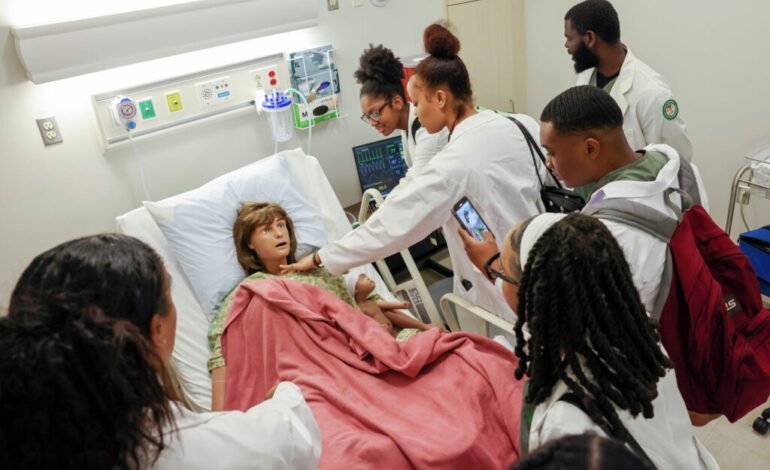Urgent: Nursing Programs Lose Professional Status, Funding Slashed

BREAKING: Major changes to nursing education funding have just been confirmed. The Department of Education announced that nursing will no longer be classified as a professional degree, significantly impacting funding for aspiring nurses across the United States. This shift, stemming from President Donald Trump’s controversial “One Big Beautiful Bill,” threatens to make nursing school less accessible for incoming students.
Under the new regulations, which were signed into law in July 2023, a strict lifetime borrowing cap of $100,000 for graduate students and $200,000 for professional students will be enforced. Effective July 1, 2026, the law will also eliminate Grad PLUS loans, a crucial financial resource for many nursing students.
Jennifer Mensik Kennedy, president of the American Nurses Association, expressed deep concern over these changes, stating, “At a time when healthcare in our country faces a historic nurse shortage and rising demands, limiting nurses’ access to funding for graduate education threatens the very foundation of patient care.”
Nursing has never been explicitly listed as a professional degree in federal regulations established in 1965, a fact the Department of Education is now using to justify the exclusion. New definitions will categorize medical, legal, and certain healthcare programs as professional while excluding nursing, physician assistants, and other key healthcare roles from these benefits.
The American Nurses Association reports there are currently over 260,000 students enrolled in entry-level Bachelor of Science in Nursing (BSN) programs and approximately 42,000 in Associate Degree in Nursing (ADN) programs. These students face increased financial barriers due to the lack of funding options.
Tuition costs vary significantly. For example, a Certified Nursing Assistant (CNA) certificate can range from $600 to $2,000, while a Bachelor of Science in Nursing (BSN) can exceed $60,000 annually. The new funding limitations could deter potential students from pursuing nursing careers at a time when the healthcare sector desperately needs qualified professionals.
The Department of Education defended the new definition, asserting, “The Department has had a consistent definition of what constitutes a professional degree for decades.” Press Secretary Ellen Keast added, “We’re not surprised that some institutions are crying wolf over regulations that never existed because their unlimited tuition ride on the taxpayer dime is over.”
As the implications of this legislative change unfold, it is crucial for potential nursing students to stay informed about their funding options and the potential impact on their education. The nursing community is urging lawmakers to reconsider these restrictions, emphasizing the urgent need for well-educated nurses in the workforce.
What happens next? Advocacy groups are likely to mobilize in response to this significant funding cut, pushing for reforms that ensure financial support for nursing education. Watch for updates as this story develops, and consider sharing this important news with those who may be affected.






